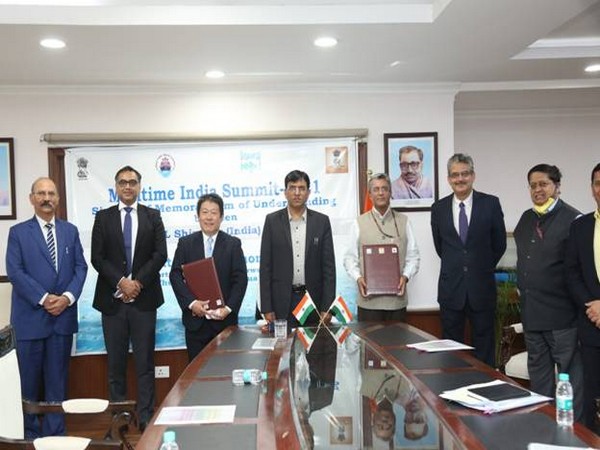IWAI inks pact with MOL (Asia Oceania) for transportation of LPG through Inland Waterways
The Inland Waterways Authority of India (IWAI) and the MOL (Asia Oceania) Pte Ltd signed a Memorandum of Understanding (MoU) on Thursday, for transportation of Liquified Natural Gas (LPG) through inland waterways.

- Country:
- India
The Inland Waterways Authority of India (IWAI) and the MOL (Asia Oceania) Pte Ltd signed a Memorandum of Understanding (MoU) on Thursday, for transportation of Liquified Natural Gas (LPG) through inland waterways. The Memorandum was signed in the presence of Union Minister for Ports, Shipping and Waterways, Mansukh L Mandaviya.
Under the memorandum, IWAI will provide support for facilitating the adequate fairway and handling of LPG cargo on IWAI terminals/ Multimodal Terminals at Haldia, Sahibganj and Varanasi as per notified provisions and rates on request of MOL and also provide Lease Available Depth (LAD) information on a fortnightly or monthly basis. MOL Group is the world's largest gas carrier company and will invest in the construction and operation of dedicated LPG barges under the 'Make in India' initiative of the Government of India. Aegis Group proposed investments for setting up storage terminals, dedicated pipelines between the jetty to the terminal and necessary infrastructure at the jetty for the evacuation of products from barges. Presently, 60 per cent of the LPG is moved through road to the various locations with a cost of Rs 5 to 6 per metric tonne per kilometre, which the oil companies are interested in reducing. Also at times, there are issues of strikes by transporters, road blockages which causes a delay in transportation. Therefore, the main area of interest for the companies is to use waterways to have a cheaper alternative to the existing mode of transportation, which is also cleaner and greener mode.
Also, there are some areas that are difficult to approach through rail/ road especially in the North-East Region where the Inland Water Transport (IWT) sector may provide usable solutions, besides the parcel size as compared to road trucks which can carry 17 metric tonnes of LPG in case of barges shall be of bigger size depending on the barge leading to economies of scale. Besides salient features of LPG over other commodities, LPG is a clean cargo with zero leakages and spillage as the products are handled by pipelines in a fully closed loop with utmost safety precautions being regulated by Petroleum and Natural Gas Regulatory Board (PNGRB) and Petroleum and Explosives Safety Organization (PESO).
LPG cargo needs less berthing time compared to any other bulk cargo. Besides, there is no requirement of conveyors, etc., installed on berths or jetties. Handling LPG by inland waterways will help reduce the carbon footprints, lowering the overall logistics cost, which in India stands approx. 13 to 14 per cent of the Gross Domestic Product (GDP), compared to the global average of 8 per cent and contributing to Government social schemes like Pradhan Mantri Ujjwala Yojana for LPG supply. (ANI)
(This story has not been edited by Devdiscourse staff and is auto-generated from a syndicated feed.)










